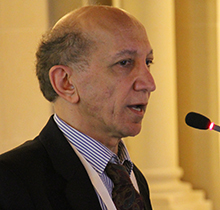Dilemmas of public policy in resource-rich countries
Large endowments of natural resources can be both a blessing and a curse: the key to having them be the former rather than the latter lies in good institutions that limit the power of interest groups and kleptocrats. This column argues that reform-minded policy-makers must find ways in which practical and innovative policies can be carried out without invoking resistance from entrenched interests.
The oil price collapse: crisis or opportunity?
How should oil-producing economies in the Middle East and North Africa respond to the potential persistence of low oil prices? This column argues that governments need both to find alternative revenue sources and to make the non-oil economy more productive. It is time to think about the next chapter in the region’s development history – the post-oil chapter.


